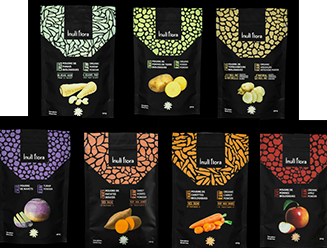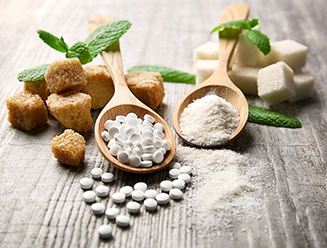Inulin is a prebiotic.
It stimulates the development of good bacteria in the microbiota (the intestinal flora). Inulin is particularly abundant in Jerusalem artichoke. It is also found in other plants belonging to the asteraceae family, such as artichoke, dandelion, echinacea … Inulin is not digestible by enzymes in the human intestine (amylases) and is considered a soluble dietary fiber.
Inulin therefore reaches the colon intact where it is used by the intestinal flora which metabolizes it, with the release of large quantities of carbon dioxide, hydrogen and/or methane. Because foods rich in inulin can cause gas, especially for the unfamiliar, these foods should initially be eaten in moderation. Since digestion does not convert inulin into monosaccharides, the latter does not raise blood sugar levels and therefore is useful in the management of diabetes. People with fructose intolerance should avoid consumption of foods rich in inulin.
Incorporate Inuliflora powders into your meals, salads, soups, smoothies, desserts. There is a flavor for every taste; Jerusalem artichoke, beets, sweet potatoes, parsnips, turnips, potatoes, carrots, apples!





